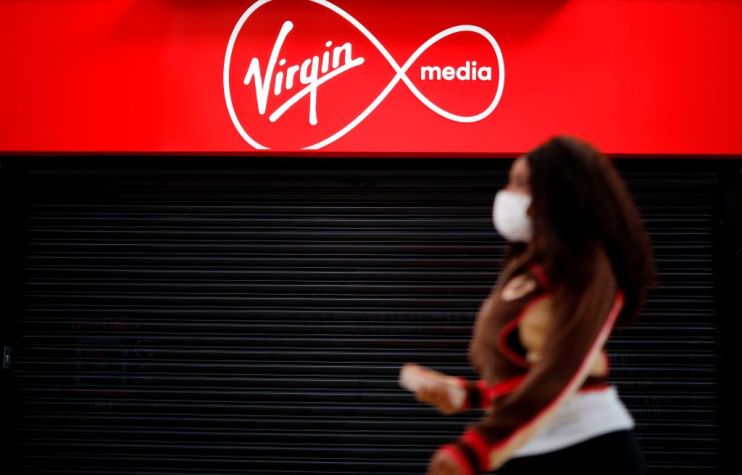O2 and Virgin Media confirm merger to create £31bn telecoms player

O2 and Virgin Media have confirmed a merger to form a multi-play broadband giant that would be valued at a combined total of £31.4bn.
The pair pledged to invest £10bn into the UK over the next five years while saving £6.2bn through combined synergies, or £540m a year five years after the merger completes.
But debt-laden Virgin Media will bring £11.3bn of baggage into the merger, negotiated by O2 owner Telefonia and Virgin Media owner Liberty Global.
Both parties expect to receive net cash once the deal closes. Telefonica expects to generate £5.7bn and Liberty Global £1.4bn.
Telefonica chief executive Jose Maria Alvarez-Pallete said: “Combining O2’s number one mobile business with Virgin Media’s superfast broadband network and entertainment services will be a game-changer in the UK, at a time when demand for connectivity has never been greater or more critical.
“We are creating a strong competitor with significant scale and financial strength to invest in UK digital infrastructure and give millions of consumer, business and public sector customers more choice and value.”
Liberty Global boss Mike Fries said of tie-up: “We couldn’t be more excited about this combination. With Virgin Media and O2 together, the future of convergence is here today.
“We’ve seen the benefit of FMC first-hand in Belgium and the Netherlands. When the power of 5G meets 1 gig broadband, UK consumers and businesses will never look back. We’re committed to this market and are right behind the government’s digital and connectivity goals.”
The two brands will pay £700m over four years to achieve their £540m per year cost synergies.
These will largely result from migrating Virgin Media traffic to Telefonica’s O2 network, combining back office IT systems, reducing combined marketing spend, shutting sites and cutting admin costs.
The transaction is expected to close in the middle of 2021, subject to regulatory approvals.
O2 boosts customers as Virgin slips
It came as both firms reported first-quarter figures as the coronavirus crisis spurred on huge demand for telecoms services.
O2 said it had increased customer connections to 34.8m in the first three months of the year, including customers using its network through Giffgaff, Tesco Mobile, Sky Mobile and Lycamobile.
The figures, which mark a 6.3 per cent growth year on year, mean O2 retains its position as the UK’s largest mobile network.
First-quarter revenue ticked up 1.5 per cent to £1.5bn, which the firm said was largely driven by higher value handset revenue.
Operating income before depreciation and amortisation was also up 1.1 per cent to £444m.
Chief executive Mark Evans said the country was facing a national crisis “on a scale not seen in this country since the Second World War”.
“Overcoming that crisis takes a united effort, and in the absence of face to face interaction, the country has welcomed connectivity more than ever,” he said.
“We know that people are relying on our network, and it’s a responsibility we take extremely seriously.”
Virgin Media posted a marginal slip in its broadband customer base, which remains just below 6m. However, its average revenue per user ticked up 1.2 per cent to £51.97.
The company said that Project Lighting — its superfast broadband rollout plan — had reached a further 93,000 premises, taking the total coverage to 2.2m. But the firm has missed its original target of reaching 4m premises by the end of last year.
Revenue for the quarter slipped 0.7 per cent to £1.3bn, while operating income hit £83.8m — up £3m on the same period last year.